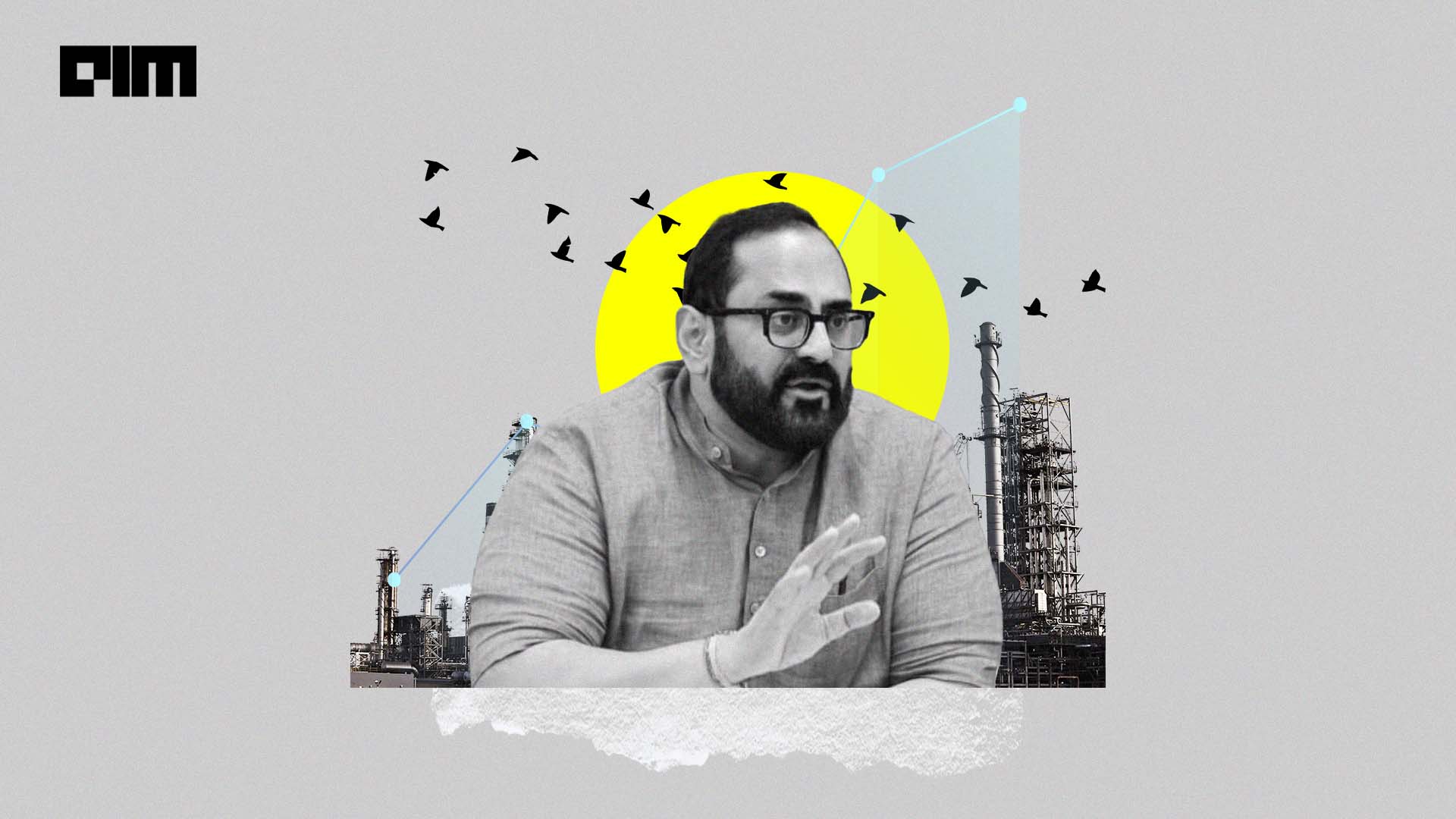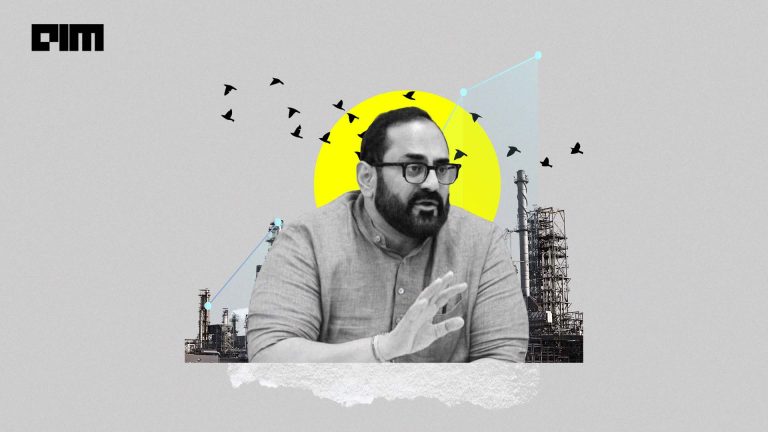|
Listen to this story
|
Rajeev Chandrasekhar has a Herculean task at hand. The BJP parliamentarian from Karnataka aims to make India a technology superpower.
Chandrasekhar, who has been serving as the Minister of State for Electronics and Information Technology since 2021, has emerged a prominent figurehead of technology for the Indian government. He has also been involved in the formulation of policies related to digital infrastructure, education, innovation, AI, semiconductor and entrepreneurship.
In his view, India will be among the few nations that will shape the future of technology with AI playing a crucial role. “AI, in my opinion, is a critical multiplier for India’s digital economy,” he said at the all.ai 2021 event, organised by Intel.
Techie at Heart
While pursuing his master’s degree in computer science at the Illinois Institute of Technology in Chicago, Chandrasekhar dabbled in a variety of roles, including that of a software coder specialising in compilers and operating systems.
Amidst all this, he remained a passionate techie, with experience in working on the early Internet and Unix systems in the late 80s. His talent caught the attention of tech giants such as Microsoft and Intel. Chandrasekhar was also a research assistant focusing on AI and robotics, and tutored many undergraduate students in his field.
Exposure to Silicon Valley
Despite interest from Microsoft, Vinod Dham (known as the ‘Father of the Pentium Chip’ for his contribution to the development of Intel’s Pentium microprocessor) managed to lure Chandrasekhar to Intel, where he worked for around three years. He joined Intel as a design engineer and helped design the i486 processor.
His stint in Silicon Valley coincided with the period when the Internet and the foundations of the modern world were being constructed by some of the most brilliant and driven individuals like Gordon Moore (Intel), Bill Gates (Microsoft), Larry Ellison (Oracle), and Steve Jobs (Apple), among others.
His background as a techie and his exposure to Silicon Valley has played a crucial role in his appointment as the IT minister today. However, Chandrasekhar’s Silicon Valley journey was short-lived. He returned to India in 1991 and joined the BPL Group, a company headed by his father-in-law.
Leveraging Background in Entrepreneurship
In 1994, Chandrasekhar began the next chapter of his life- entrepreneurship. He founded BPL Mobile and helped set up India’s largest cellular network. The company was one of the first in India to get a cellular licence.
Without any background in the sector, Chandrasekhar’s entrepreneurial instinct helped shape the telecom sector of India.
( Rajeev Chandrasekhar in 1994)
In 2005, he exited the telecom sector by selling his stakes at BPL Mobile and founded an investment firm called Jupiter Capital. Today, Chandrasekhar’s investment firm handles assets worth more than USD 1 billion. His comprehensive knowledge of both the technology and business ecosystems in India have been instrumental in his progress as a public servant.
Chandrasekhar, along with his government, has promoted entrepreneurship in the country. Today, India has the third-largest startup ecosystem in the world. He was instrumental in setting up the National Startup Advisory Council and has been advocating for regulatory reforms to support emerging technologies.
Besides, he also has been involved in the development and implementation of the National Education Policy, which aims to reform India’s education system by emphasising innovation, research, and entrepreneurship.
Advocating for AI
Chandrasekhar’s track record as a Union minister has been commendable so far. As the incumbent IT minister, Chandrasekhar has been advocating emerging technologies such as AI. Time and again, the Minister has stressed on the benefits of AI in various sectors.
It is estimated that by 2035, AI will contribute a staggering USD 967 billion to the Indian economy, while also accounting for 10% of the country’s ambitious USD 5 trillion GDP target by 2025. Having worked on AI as a research assistant, the Union minister has recognised the importance of the technology and has repeatedly acknowledged its role as an enabler in delivering better governance.
True to his words, the Union minister recently revealed that India is planning to launch its own AI programme in the coming months.
Recently, he revealed that India will launch the India AI programme in the next 2-3 months. According to the Minister, it will be one of the largest publicly available datasets in the world with three centres which were announced in the Budget. “We aim to build commercially deployable AI platforms and solutions developed by a vibrant startup ecosystem in the country which is our primary goal,” he said.
Chandrasekhar represented India at the Global Partnership on Artificial Intelligence (GPAI) meeting held in Tokyo last year. In fact, it was under his tenure that India became a founding member of GPAI – an initiative to support responsible and human-centric development and use of AI.
( Chandrasekhar addressing the GPAI Summit in Tokyo)
Skilling India in Emerging Tech
As an MoS for skill development and entrepreneurship, Chandrasekhar has been involved in various initiatives aimed at upskilling the Indian workforce. He has stressed the importance of equipping workers with the skills necessary for emerging industries and technologies. Finance Minister Nirmala Sitharaman, during her Budget 2023 speech, spoke about upskilling workers in new-age tech like AI.
Similarly, at the second Semicon India Future Design roadshow held in Bengaluru IISc campus, Chandrasekhar said that India plans to produce a minimum of 85,000 global semiconductor talents in the next two years. It is a welcome move because India has a young talent pool and adds nearly 10 million to its workforce every year. Even though skilling initiatives in India are not new, and historically, they have not worked, it’s a step in the right direction.
The Minister has also been at the forefront of bringing in two important Bills – the Digital Personal Data Protection Bill (DPDPB) 2022 and the Digital India Act, which will replace the archaic IT laws.
















































































